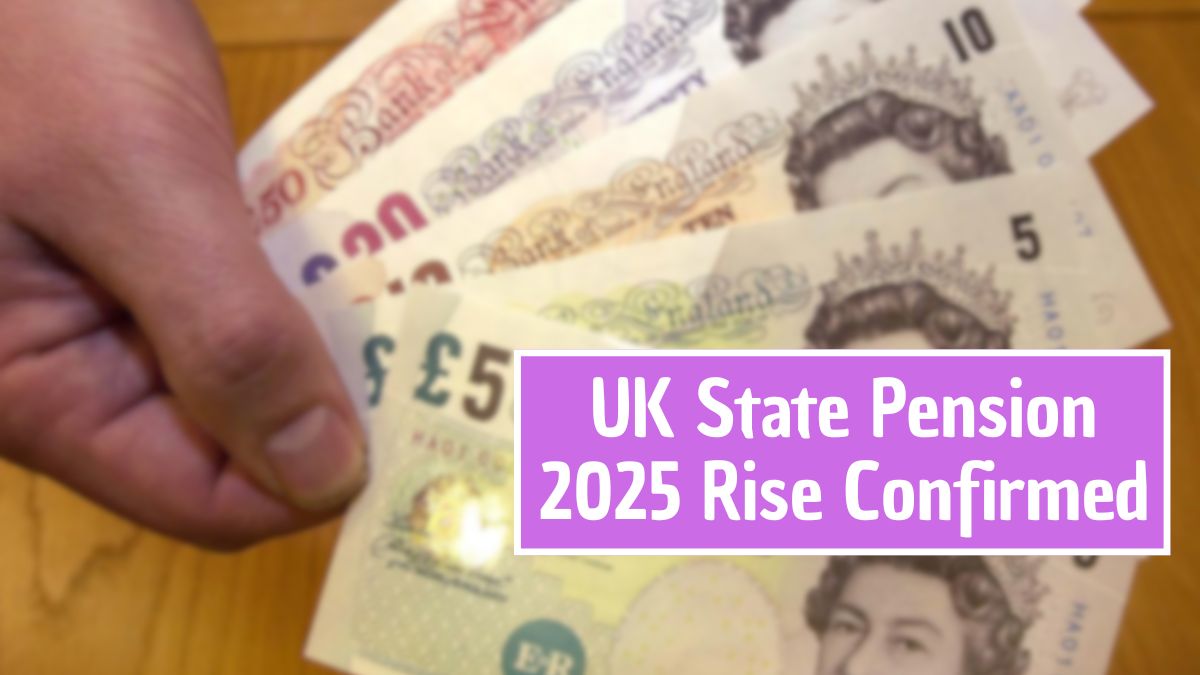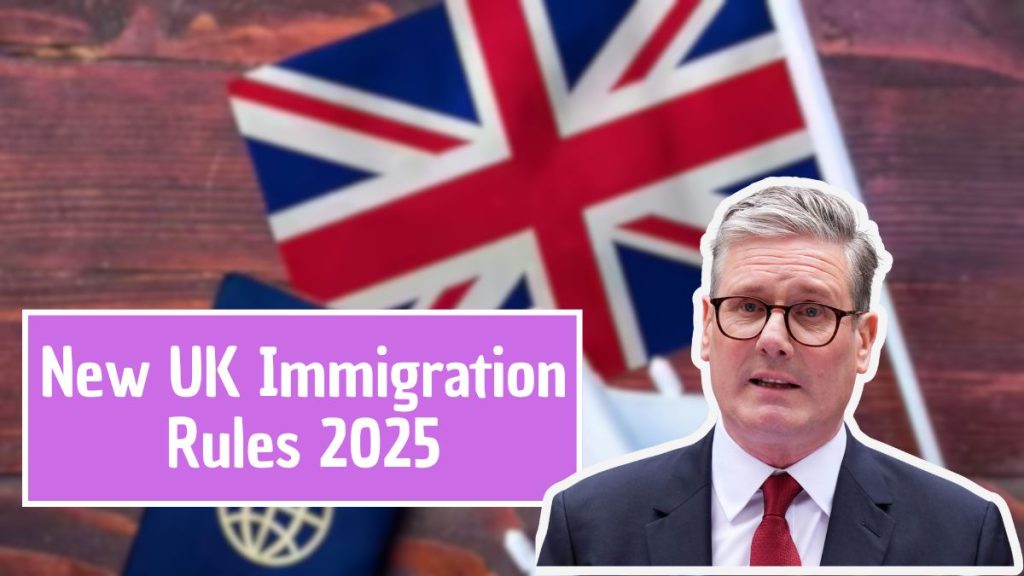The UK government has introduced sweeping changes to its immigration system, tightening eligibility criteria for overseas workers and employers. These changes affect multiple visa categories, including the Skilled Worker visa, Graduate visa, and High Potential Individual (HPI) visa, among others.
With work visa applications opening in October 2025, prospective migrants and UK employers must prepare for a more complex compliance landscape. The new system introduces higher salary thresholds, stricter qualification levels, and fewer exemptions—a shift designed to balance the UK’s labour needs with its domestic employment priorities.
Key Facts About the 2025 UK Work Visa Changes

| Key Fact | Detail | Source / Note |
|---|---|---|
| Skilled Worker Salary Threshold | From 22 July 2025, minimum salary raised to £41,700 or the role’s “going rate,” whichever is higher | GOV.UK “Skilled Worker visa: Your job” |
| Skill Level Requirement | Raised from RQF Level 3 (A-level) to RQF Level 6 (Degree-level) | DLA Piper / Home Office |
| Temporary Shortage List (TSL) | Only select medium-skill roles allowed under the TSL | GOV.UK TSL guidance |
| Visa Routes Without Job Offer | Graduate Visa, Global Talent, Youth Mobility Scheme, HPI Visa | GOV.UK “Work in the UK” |
| Application Opening | October 2025 under new rules | Home Office Immigration Policy |
Why the UK Tightened Work Visa Rules
The updated framework is part of the government’s broader plan to control immigration while maintaining competitiveness in key sectors. In recent years, the UK has faced criticism for relying heavily on foreign workers in lower-wage industries, particularly social care.
By raising salary and skill requirements, the government aims to attract high-skilled professionals while ensuring that migration aligns with the needs of the economy. The reforms also reflect political pressure to manage migration numbers while encouraging investment in domestic skills training
Revised Skilled Worker Visa Rules (Effective July 2025)
The Skilled Worker visa—one of the UK’s most popular work routes—has undergone major reform. From 22 July 2025, the minimum salary threshold has increased to £41,700 or the specific role’s “going rate,” whichever is higher. This marks a significant jump from the previous £26,200 threshold.
In addition, the required skill level has been upgraded from RQF Level 3 (A-level equivalent) to RQF Level 6, meaning that most eligible positions now demand degree-level qualifications. Jobs that fall below this skill threshold will only qualify if listed on the Temporary Shortage List (TSL)—a government-defined set of occupations facing critical labour shortages.
End of Overseas Recruitment for Care Workers
As part of these reforms, new overseas recruitment for social care worker roles officially ended in July 2025. The move was intended to reduce dependency on foreign labour in care sectors, although critics warn it could worsen staffing shortages in an already strained system.
Existing visa holders in social care can remain until their permits expire, but no new applications will be accepted from abroad for these positions.
Flexibility Through Tradeable Points
Despite the tougher standards, the points-based system still offers some flexibility. Applicants can qualify under “tradeable points”—alternative criteria that offset lower salaries in certain cases. For example, candidates may still qualify with:
- A PhD relevant to the job
- New entrant status (younger workers starting careers)
- A job appearing on the Immigration Salary List (ISL)
This allows employers some leeway when hiring highly qualified or early-career workers at slightly below the general salary floor.
Other Work Visa Routes Without Job Offers
Not all pathways to work in the UK require sponsorship or a confirmed job. Several routes remain open for talented individuals seeking short- or long-term opportunities:
- Graduate Visa – For students who completed eligible UK degrees and want to work or seek work for up to two years (three for PhD graduates).
- Global Talent Visa – For exceptional leaders or emerging talents in sectors like science, technology, arts, and academia, endorsed by recognized bodies.
- Youth Mobility Scheme – Allows young adults (aged 18–30) from participating countries to live and work in the UK for up to two years.
- High Potential Individual (HPI) Visa – Targets top graduates from globally ranked universities, allowing them to work without prior job offers.
- Temporary Work Visas – Cover short-term roles in sectors such as charity, creative arts, seasonal work, religious work, and cultural exchange programs.
Transitional and Legacy Protections
To ease the shift, transitional arrangements apply for individuals already holding valid visas before 22 July 2025.
- Workers on an existing Skilled Worker visa or those with a Certificate of Sponsorship (CoS) issued before the new rules came into effect may continue under previous thresholds when extending or switching visas.
- Similar protections exist in Scotland, where workers extending or switching visas after the deadline will still follow the old salary and skill criteria.
These transitional rules ensure continuity for migrants and employers already engaged under the earlier system.
Application Process and Key Requirements (2025 Update)
For applicants planning to submit under the new framework from October 2025, several steps are critical:
- Secure a Licensed Sponsor – Obtain a valid Certificate of Sponsorship from a Home Office-approved employer.
- Meet the Salary and Skill Criteria – Confirm that the job meets the raised thresholds and skill level requirements.
- Fulfil Language and Financial Standards – Demonstrate English proficiency and meet financial maintenance requirements, unless exempt.
- Submit Supporting Documents – Include proof of identity, educational qualifications, salary details, and sponsorship documents.
- Apply on Time – Applications may be filed up to three months before the job’s start date.
For those already in the UK on different visas, switching to the Skilled Worker route is possible—provided they meet the new eligibility conditions and apply before their current visa expires.
Processing Times Under the New System
Application processing times remain consistent with earlier schedules, though they may vary depending on workload and complexity:
- Outside the UK: Decisions typically arrive within three weeks if all documents are in order.
- Within the UK (Switching or Extension): Around eight weeks from submission.
- Priority or Super-Priority Services: Available in select regions for additional fees, offering decisions in as little as five working days or even 24 hours.
Impact on Employers and Migrants
Employers now face higher compliance obligations. They must carefully check salary levels, qualification requirements, and sponsorship records to avoid penalties. Recruitment teams will also need to verify whether job roles qualify under RQF Level 6 or appear on the Temporary Shortage List.
For migrants, the reforms represent a more competitive environment. While the new system favours high-skilled applicants, it limits access for mid-level or lower-wage workers. Many sectors dependent on such roles—hospitality, logistics, and healthcare—could face renewed labour shortages unless domestic recruitment fills the gap.
Challenges and Criticisms
Critics have raised concerns that the new thresholds may exclude essential workers and make the UK less attractive to global talent compared to countries like Canada or Australia.
Business groups and universities have urged the government to maintain flexibility, particularly for fast-growing tech and creative industries that rely on international expertise. Others fear that small employers might struggle to meet the administrative demands of sponsorship licensing.
Balancing Control, Fairness, and Competitiveness
Officials argue that the changes promote economic fairness and encourage investment in UK-based training while maintaining the country’s appeal to skilled migrants.
The Home Office has pledged to closely monitor the impact of these reforms and adjust where necessary. Over the coming months, observers will watch whether the system successfully balances control, competitiveness, and fairness—the three pillars behind the 2025 immigration reform.
FAQs on the UK Work Visa Changes (Effective October 2025)
1. When do the new work visa rules come into effect?
The revised immigration rules take effect from October 2025, with the Skilled Worker reforms already active since 22 July 2025.
2. What is the new salary threshold for Skilled Worker visas?
Applicants must now earn at least £41,700 per year or the occupation’s “going rate,” whichever is higher.
3. Can I still apply for a visa as a care worker?
No. The government has ended new overseas recruitment for social care worker roles from 22 July 2025.
4. Do I need a job offer to work in the UK?
Not always. Routes such as the Graduate Visa, Global Talent Visa, and HPI Visa allow applicants to work without pre-arranged job offers.
5. How long will my visa application take to process?
Processing usually takes three weeks for overseas applications and eight weeks for in-country extensions or switches, though faster services may be available for a fee.














